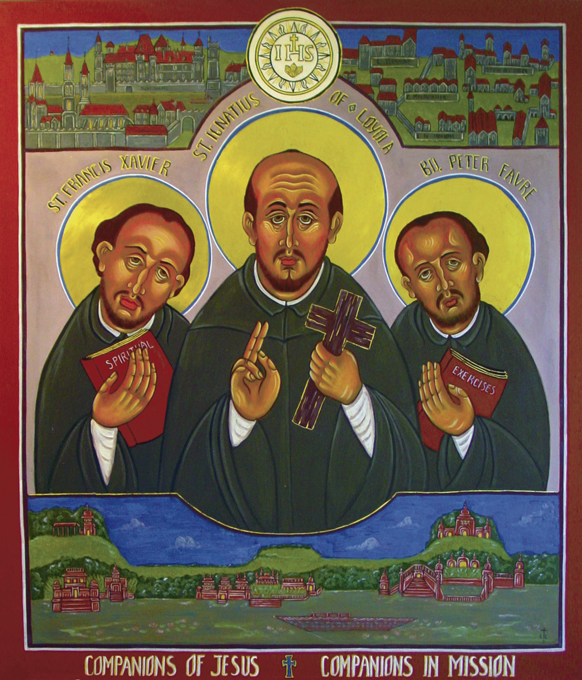My dear brothers and sisters in the Lord,

As I continue my “Summer with the Saints” series, it will be good to speak about a man who was actually converted by reading the lives of saints: St. Ignatius Loyola. His feast day is July 31.
In his early days, Ignatius was a man addicted to gambling. He was very pretentious and lived a dissolute life. He was wounded in a battle and forced to recuperate for many months. During this time, and out of frustration, he began to read the lives of the saints as well as the life of Christ. His reading of the lives of these holy people deeply touched Ignatius and set him on the road to conversion. Close to death, Ignatius miraculously took an unexpected turn for the better on the Feast of Ss. Peter and Paul. He was able to regain his strength and move on with his life.
One of Ignatius’ distinguishing methods was his “spiritual exercises.” These meditative retreats have become characteristic of the Jesuits, the order that he founded. In these meditative retreats, Ignatius used not only the intellect but also the senses, feelings and emotions. All of these help us discern the action of the Spirit in our lives.
Ignatius underwent a period of discernment in Spain in a town called Manresa, a name and title that is used for many Jesuit retreat houses to this day. During that period, he came up with the idea of founding a religious order and started to gather men around himself. Then, already over 30 years of age, Ignatius began to study for the priesthood well behind others in his knowledge of Latin. He took seriously and humbly the effort to learn Latin so that he could study theology and eventually be ordained to the priesthood.
Ignatius, with his first two companions, decided to go to Rome and meet the Pope of the day who gave him permission to live a common life, although the idea of founding a religious order was not uppermost in his mind. Pope Paul III allowed him to begin what is formally known as the Society of Jesus.
The great lasting fruits and sanctity of Ignatius are found to this day in the Jesuit Order dedicated in its fourth vow to the service of the Holy Father. The historical development of the Jesuits since the 16th century has not been an easy one. There was a period when they were suppressed as an order, and all of the Jesuits had to find a diocese willing to accept them in order to continue their priestly work.
The charism of Ignatius, however, prevailed. Today, many of the works of this essentially missionary order deals with education. It was the insight of Ignatius that his followers should work with those with whom they could accomplish the greatest good, such as those in positions of authority or others capable of exercising authority for the good of society.
The life of Ignatius teaches us many lessons. He put out into the deep and changed his own life. He became an example for religious work in the Church.
Our own personal conversion is essential to beginning the New Evangelization as we attempt in a new age to reach our fellow citizens. Perhaps, as Ignatius might tell us, we should begin with those with who we can do the most good and exercise the greatest influence.
